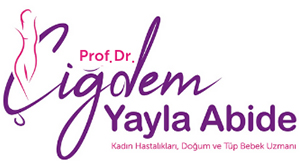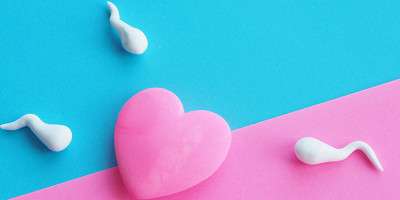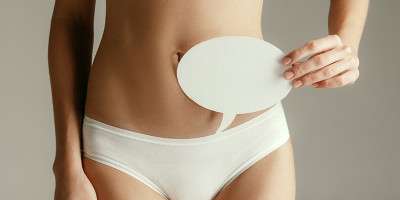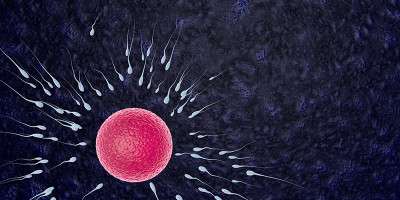The question of what is vaccination is a question that couples who cannot have children naturally search for the answer. The vaccination method is an assisted reproduction method applied to couples who apply with a diagnosis of infertility.
Intrauterine Insemination, i.e. vaccination method, is the process of washing the sperms taken from the man in the laboratory environment, selecting the sperms with the highest mobility and transferring them to the uterus of the mother-to-be during the ovulation period with the help of a thin catheter. Thanks to this process, the sperms with higher motility and better morphology are delivered directly into the uterus in a higher concentration by passing the cervix factor. It can be performed by ovarian stimulation (stimulation of the eggs with drugs) or naturally (without drugs).
How is vaccination treatment done?
We can answer the question of how vaccination is done to have a baby by explaining the process step by step;
Stimulation of the ovaries
The uterus and ovaries are evaluated by ultrasound performed on the 2nd or 3rd day of menstruation and if there is no obstacle to start treatment, the patient is started on egg enlarging drugs and the growth of the eggs is monitored with intermittent controls. The number of eggs, the patient's age, weight and height, and previous treatments are taken into consideration when adjusting the drug dose.
The medicines used are oral medicines or injections containing low dose hormones. The desired result is the growth of 1 egg.
Sometimes vaccination can also be performed in the natural cycle (without medication, only follicle monitoring).
Giving the Ovulation Injection (HCG)
When 1-2 growing eggs reach a diameter of 17-20 mm, the patient is given a hatching injection.
(If more than 3 eggs are formed, the treatment should be cancelled considering the health of the patient, since the risk of multiple pregnancy is on the agenda. In order to prevent pregnancy, the patient should be warned not to have intercourse).
Preparation of Semen
34-36 hours after the injection, sperms with better movement and morphology, which are prepared at the same time, taken from the man by masturbation method and washed in the laboratory, are placed in a transfer catheter.


Intrauterine Insemination
In the meantime, the expectant mother is taken to the gynaecological examination table, and after the cervix is visualised with a speculum, the spermatozoa are released directly into the uterus bypassing the cervix through the catheter in which it is located, under ultrasound guidance.
To whom is vaccination treatment applied?
To whom is vaccination treatment applied in case of inability to have a child naturally? If the sperm count of the man is low or low, if the sperm movement is lower than normal, in infertility with no cause, in endometriosis diagnosed at an early stage, if the woman has ovulation problems and pregnancy has not been achieved with egg follow-up, vaccination treatment can be applied to couples who want to accelerate the achievement of pregnancy for social reasons. It is not always necessary to try the IVF method directly in couples who only have sperm morphology problems, depending on the extent of the morphological problem, these couples can also try the vaccination method.
To whom is vaccination treatment recommended?
- Couples withunexplained infertility (In case no underlying cause is found with the examinations performed)
- In mild sperm disorders (sperm count or motility decreased but above a certain level)
- At least one tube must be open for vaccination.
- Stage 1-2 endometriosis patients
- Women with cervical (cervical) factors (women who have undergone surgery and scar tissue, cervical disorders due to infection or anomalies)
- In cases where sexual intercourse cannot be performed due to reasons such as vaginismus, premature ejaculation, erectile dysfunction and the passage of sperm through the cervix is prevented, vaccination treatment may be appropriate.
What to do for vaccination to work?
The things to be considered after vaccination can be listed as follows;
- The vaccinated person should not lift heavy objects.
- After vaccination, sudden movements should be avoided and you should rest if possible.
- You should not make sudden movements and sports on the day of vaccination and the following days.
- Stress and sadness should be avoided.
- Medicines prescribed by the doctor should be taken on time.
- After the vaccination and for 3 days afterwards, you should not take a bath or swim in the sea or pool.
- The expectant mother should eat healthy during this period.
How can I tell if the vaccination is successful?
How can you tell if the vaccination is successful? We can understand that the sperm placed in the uterus with vaccination initiates pregnancy, in other words, that pregnancy occurs after vaccination treatment, with menstrual delay and known pregnancy symptoms. When a woman who has undergone vaccination has a delayed menstrual period, a pregnancy test can be performed in the blood and it can be easily understood whether the vaccination treatment has held or not. In women who eventually become pregnant through vaccination, the fact that the vaccination has been successful can be recognised by the delayed menstrual period, known pregnancy symptoms and a blood test.
How long should I rest after vaccination?
- It is sufficient to rest for 5-10 minutes on the table where thevaccination procedure is performed. (Although there is no scientific evidence, it is generally recommended).
- Heavy activity and sports are not recommended on the day of the procedure.
- For 2 weeks, activities such as heavy sports, heavy house cleaning are not recommended, but you can go to work the next day and do light exercises.
Can I take a bath after vaccination?
Yes, it is even good to take a warm shower.
Can I go to the toilet immediately after vaccination?
It is possible, but in our clinic, we recommend our patients to rest on the table for 10 minutes after the procedure and then go to the toilet.
Does vaccination treat infertility?
Vaccination does not treat the cause of infertility, it increases the chance of pregnancy.
How long after vaccination should I take a pregnancy test?
A βhCG test is performed 12-14 days after the vaccination to determine whether a pregnancy has occurred.
Is vaccination a painful procedure?
No, it is not.
What are the Factors Affecting Success in Vaccination?
- The age of the expectant mother; since young patients have better ovarian reserves
- Duration and cause of infertility
- Ovarian reserve
- Sperm count
What is the success rate of vaccination?
The chance of success is 10-15% on average.
For whom is vaccination treatment not preferred?
- Expectant mother over 39 years of age
- If more than 8 years have elapsed (this period can vary)
- If the motile sperm count is <5 million/ml or if there is a severe structural defect in the sperm
- If the ovarian reserve is low
- If the vaccination was performed 2 times and failed (in some centres this number of attempts is higher)
After How Many Vaccinations Should I Proceed to IVF Treatment?
When deciding on IVF treatment, the patient's ovarian reserve, age, duration of infertility, sperm analysis, whether the tubes are open or not are evaluated.
Except for infertile patients for whom IVF treatment is recommended first, at least 2 vaccinations are recommended for patients for whom we recommend vaccination as the first treatment.
While 3-6 vaccinations were performed before IVF treatment in IVF centres in the past, direct IVF treatment is now recommended due to the similar rate of obtaining pregnancy with natural methods and trials after the first 2 vaccinations (due to the higher success rate of IVF treatment).
What should be done if too many eggs develop during vaccination treatment?
Vaccination should be cancelled if 3 or more eggs develop due to the risk of multiple pregnancy. If possible, in vitro fertilisation treatment can be started. Although it is rare, the patient should be followed up in terms of OHSS.
Do I need to fast for vaccination treatment?
No, you do not need to be hungry. However, your doctor will ask you to urinate.
Vaginismus patients are asked to be hungry and thirsty for 6 hours since vaccination will be performed under anaesthesia.
Is there anything I can do at home to increase the success of vaccination treatment?
Lifestyle is important in all infertile patients, especially in polycystic ovary patients. Healthy nutrition and regular exercise should be done, toxins in the environment should be avoided, smoking should be avoided, caffeine should not be consumed too much.
Can I travel on the day of vaccination?
Travelling is not prohibited. However, you should walk every 2 hours for long journeys.
Can I have sexual intercourse after vaccination treatment?
Yes, we especially recommend intercourse after 1 day.
What should be considered after vaccination?
- Mild groin pain and cramps can normally occur.
- You do not need to spend the day lying down
- It is necessary to eat a healthy diet, plenty of fluids and protein should be eaten, fastfood style foods and excess sugar should be avoided.
- Activities that increase intra-abdominal pressure such as heavy lifting should be avoided and heavy work should be avoided for 2 weeks.
- It will be good to take a warm shower when you get home.







